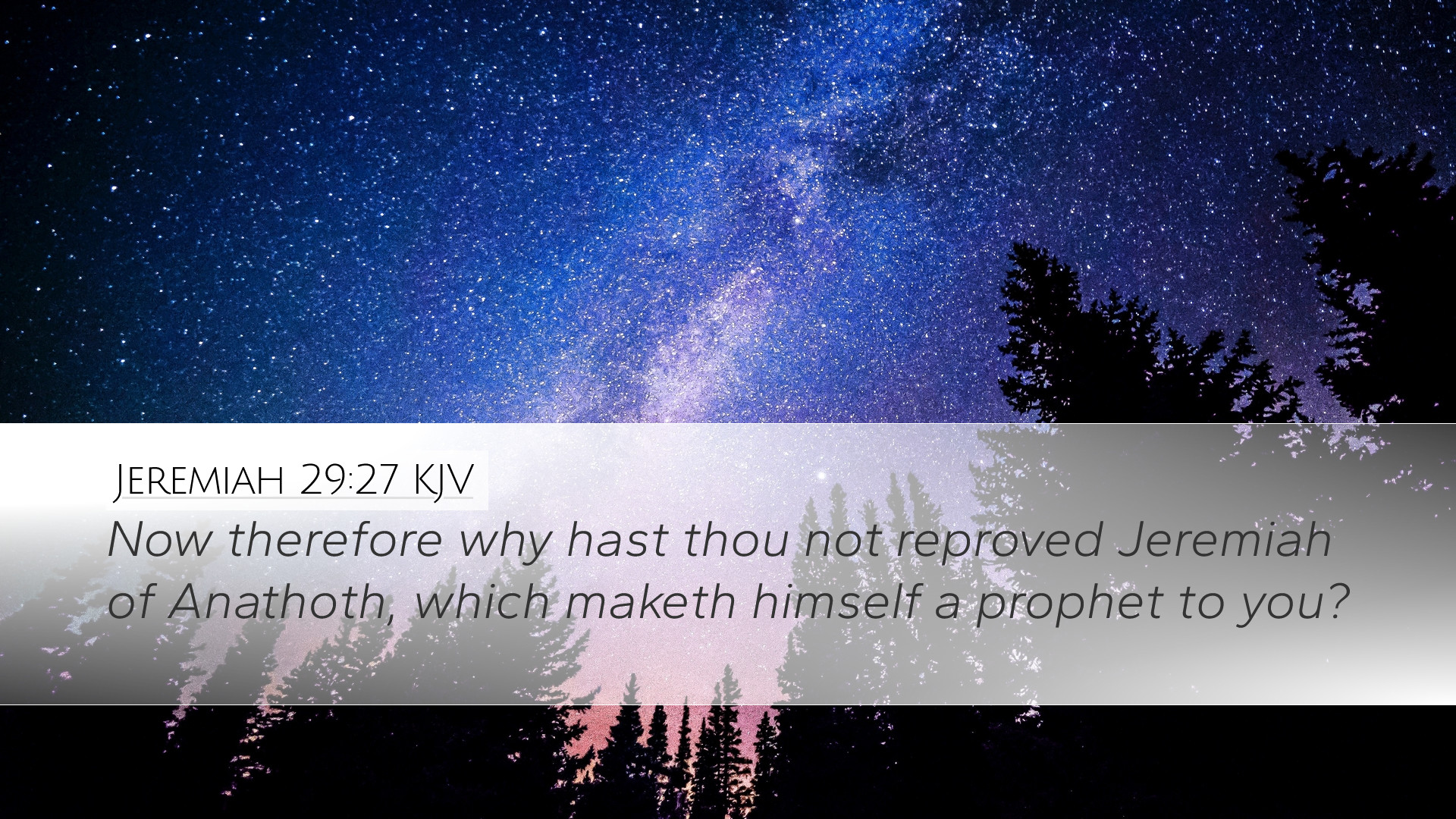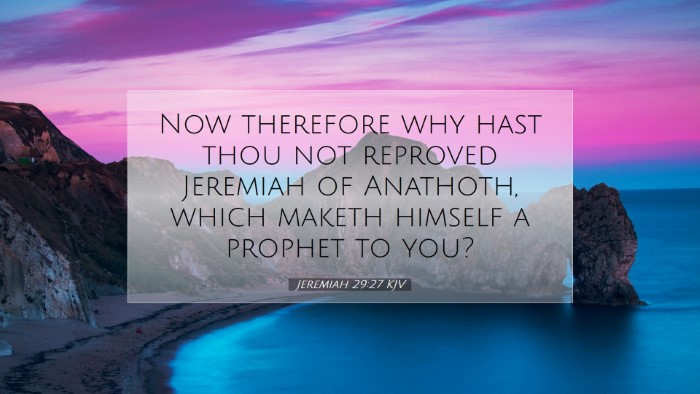Commentary on Jeremiah 29:27
Verse: "You are to speak to them and say, ‘Thus says the Lord of hosts, the God of Israel: Why do you prophesy in My name when I have not sent you? And you have caused this people to trust in a lie?’" (Jeremiah 29:27)
Introduction
Jeremiah 29:27 is part of a larger letter that the prophet Jeremiah sent to the exiled Israelites in Babylon. This verse reflects the tension between true and false prophets. In a time of distress, the people were susceptible to messages that promised hope and deliverance, even if such messages contradicted God’s true word.
Historical Context
In the context of the Babylonian exile, the Israelites were struggling with despair and uncertainty about their future. False prophets arose, promising immediate restoration and relief from the Babylonian captivity. Jeremiah's message serves as both a warning and a clarification of God’s intentions during this trying time.
Insights from Commentators
Matthew Henry
Matthew Henry emphasizes the seriousness of false prophecy, indicating that those who mislead the people not only bear a burden of guilt, but also lead others into error, creating a profound spiritual danger. He sees the call to speak against such deception as a divine mandate: “It is the Lord’s own cause.” Henry also highlights that God is committed to the truth and will not allow His name to be used in vain without accountability.
Albert Barnes
Albert Barnes notes the authority with which Jeremiah challenges the false prophets. By invoking the divine "Lord of hosts," the appeal is made to God's supreme authority over all. Barnes interprets this as a critical reminder that all prophetic messages must align with God’s will as revealed through true prophets. The centrality of God's truth in prophecy reinforces the idea that falsehood creates a false sense of security, leading the people to misplaced trust.
Adam Clarke
Adam Clarke elaborates on the phrase "have not sent you," suggesting that the false prophets acted independently and misrepresented God's intentions. Clarke underscores the importance of certainty in calling oneself a prophet and the severe consequences that follow when one speaks without divine commission. He advocates for discernment among the people of God, stressing that they must carefully consider the source of the messages they receive.
Theological Themes
- Authority of God: The declaration of God’s authority is pivotal in this scripture. God, as the ultimate authority, ensures that any prophecy must be aligned with His truth.
- Discernment and Truth: The need for discernment among believers is a recurring theme in Scripture. Followers are called to test the spirits and discern truth from falsehood.
- Consequences of Deceit: False prophets are warned about the serious ramifications of misleading God’s people. Their actions not only endanger their souls but also the welfare of the community of faith.
Practical Applications
For pastors, students, theologians, and Bible scholars, the message of Jeremiah 29:27 serves as an urgent call to uphold the integrity of the Word of God. Here are several practical applications:
- Commitment to Scripture: Leaders must prioritize fidelity to the Bible, recognizing it as the ultimate authority in matters of faith and practice.
- Encouragement of Accountability: Build an environment where prophetic voices are held accountable to God's Word, fostering discernment within the community of faith.
- Challenge for Reflection: Encourage believers to reflect on the messages they receive and ensure they align with the teachings of Scripture and the character of God.
- Promotion of Spiritual Awareness: Cultivate a culture that values awareness of false teachings and empowers members to engage critically with messages that may contradict biblical truths.
Conclusion
In summary, Jeremiah 29:27 stands as a powerful warning against the dangers of false prophecy and the importance of proclaiming God’s true message. As the church navigates a complex spiritual landscape, the insights gained from the commentaries of Matthew Henry, Albert Barnes, and Adam Clarke underscore the critical need for discernment, truth, and faithful proclamation of the Gospel. By engaging deeply with this text, believers are called to embody the truth of God’s Word, offering hope grounded in the reality of His promises, even amidst exile or struggle.


